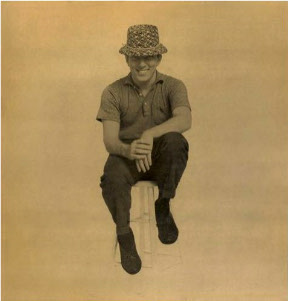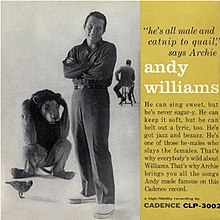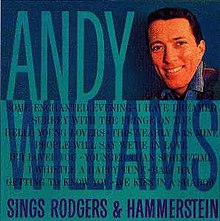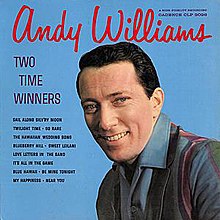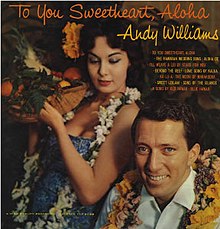 |
| Every child of the 80's owns this whether you know it or not. |
So... what is up with this love affair with a format that saw massive popularity for a relatively short period of time in the grand scheme of music formats and then died a cold, hard death at the foot of the juggernaut that is the compact disc (that itself is dying due to the rise of digital downloads)? Well, I grew up in the 80's, but that doesn't really explain anything. I didn't really get into music extensively until the early 90's, a time when cassette sales were on the decline. If you know me though, then you know I am a bargain shopper. Even at the age of twelve, this mentality was ingrained in me, although more due out of necessity than any sort of force of habit. My parents were not big money makers, and I had to make due to with a fairly small allowance. So I learned to make the most with what I had, which meant digging in clearance bins through Extreme and Meatloaf cassingles (cassette singles for those of you that aren't hip to the lingo) to find the occasional treasure such as the awesome "Last Tango in Paris", a Queensryche B-side found on the flip side of "Real World", a song featured in Last Action Hero. And if a cassette was, on average, $2 or $3 cheaper than the same album on CD? It was a no-brainer. I would buy the cassette every time.
 |
| I literally could not find a single picture of the Queensryche cassette single on the internet... This saddens me far greater than it probably should. |
Often when people my age talk about the first album they own, it's more often than not a point of embarrassment (the first cassette my friend ever owned was New Kids on the Block, although he's suspiciously quick to point out that his parents bought it for him without his knowledge). Tastes change, and often younger people tended to follow the herd mentality and listen to whatever was most popular at the time. As a result, many people associate cassettes with shame, spouting early album purchases such as MC Hammer and Vanilla Ice. I'm proud to state that the first three cassettes I've ever owned were not a point of embarrassment at all, and I still own all three of them in their CD incarnations. The first cassette I ever acquired was The Beastie Boys' License To Ill. It was given to me by one of my cousins, who didn't want it anymore for reasons unknown. While I don't think this is the Beasties' finest hour, its a great party album and still fun to listen to.
 |
| Yeeeeaaaaaaa!!!!!!! |
The first cassette I ever purchased was Collective Soul's Hints, Allegations and Things Left Unsaid. Not a masterpiece of 90's alterna-rock by any means but it had several great songs on I still enjoy today. The question as to whether this really qualifies as my first purchase is a bit iffy in that I bought it at a flea market on Mule Day (yea... small Alabama towns...I dunno...), and upon unwrapping it when I got back to the car, I realized that it was a bootleg copy with no liner notes and the ink printed on the cassette smudged. I didn't care too much though since it still sounded like Collective Soul.
 |
| Disciplined Breakdown ain't got nothin' on this bad boy. |
The first LEGITIMATE cassette I ever bought was Aerosmith's Toys in the Attic. In the early 90's I started really getting into Aerosmith. It got to the point that they rose to that prestigious title of "favorite band" even (although after "I Don't Wanna Miss A Thing", my love for them died like a goth kid's black-painted rose placed on the grave of Ian Curtis). The early 90's brought my first extended exposure to MTV and with it came the barrage of Aerosmith music videos featuring Alicia Silverstone. While none of those songs were my favorites, it opened the door to deeper cuts like "Eat the Rich" and "F.I.N.E." The video that started all of it though was Aerosmith's collaboration with Run D.M.C. on a new version of "Walk This Way". Which finally leads me to why I bought Toys in the Attic. I didn't even know it was released in the 70's. I just saw that it had "Walk This Way" on it and had to have it. I was actually a little disappointed once I listened to the album that the chorus to the Run D.M.C. version was altered, but I got over it. To this day, while my enjoyment of Aerosmith has faded, Toys in the Attic is still a great album. "Round and Round" is almost 40 years later still one of the heaviest songs they've ever written (also far superior to the Ratt sound of the same name), and Tom Hamilton still looks like my friend's dad.
 |
| Pop Quiz: My friend's dad or Tom Hamilton? Answer: Both, they're secretly the same person |
Unlike vinyl which has some positive attributes to the collector such as the more "pure" analog sound as well as the much larger album art for display and admiration purposes, cassettes do not seem to have much of a following anymore beyond the occasional ironic mixtape and the underground noise and punk scenes (somebody with way too much irony has even been pushing a Cassette Day to record stores). Cassettes did have their day in the sun though, and I will always have fond memories of the format that introduced me to a wider world of music.

